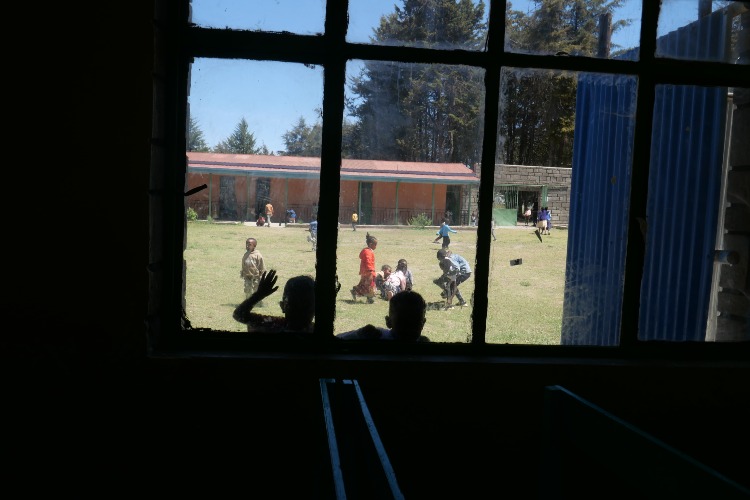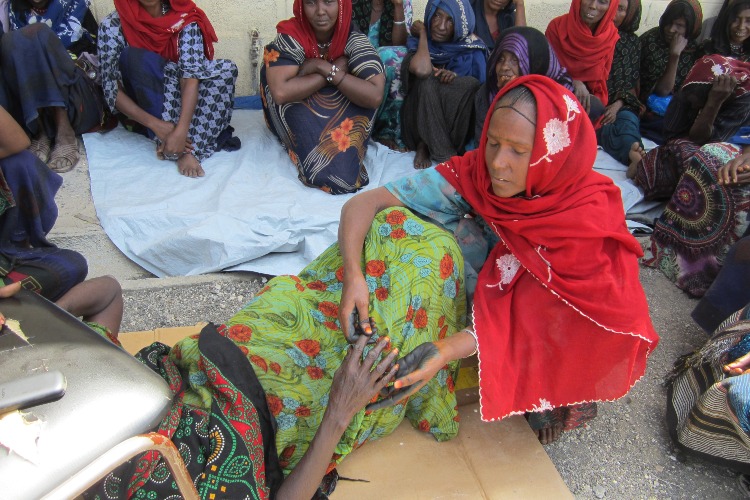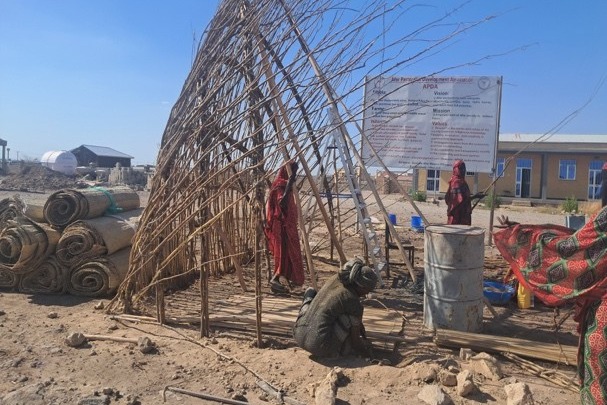Maternal Mortality in Ethiopia
28 October 2025
Why the Afar region is one of the deadliest places to give birth in Ethiopia
Maternal mortality remains one of Ethiopia’s most pressing health challenges – and it is amongst its most severe in the Afar region, located in the country’s north-east. For thousands of expectant mothers in Afar, childbirth is still a dangerous and often deadly experience. Most women give birth at home, far from hospitals or skilled medical care. When complications arise, the nearest health centre can be more than a week’s walk away. A combination of isolation, poverty, and harmful traditional practices means Afar continues to record some of the highest maternal death rates in the country. Yet, through local partnerships and community-led solutions, progress is being made.
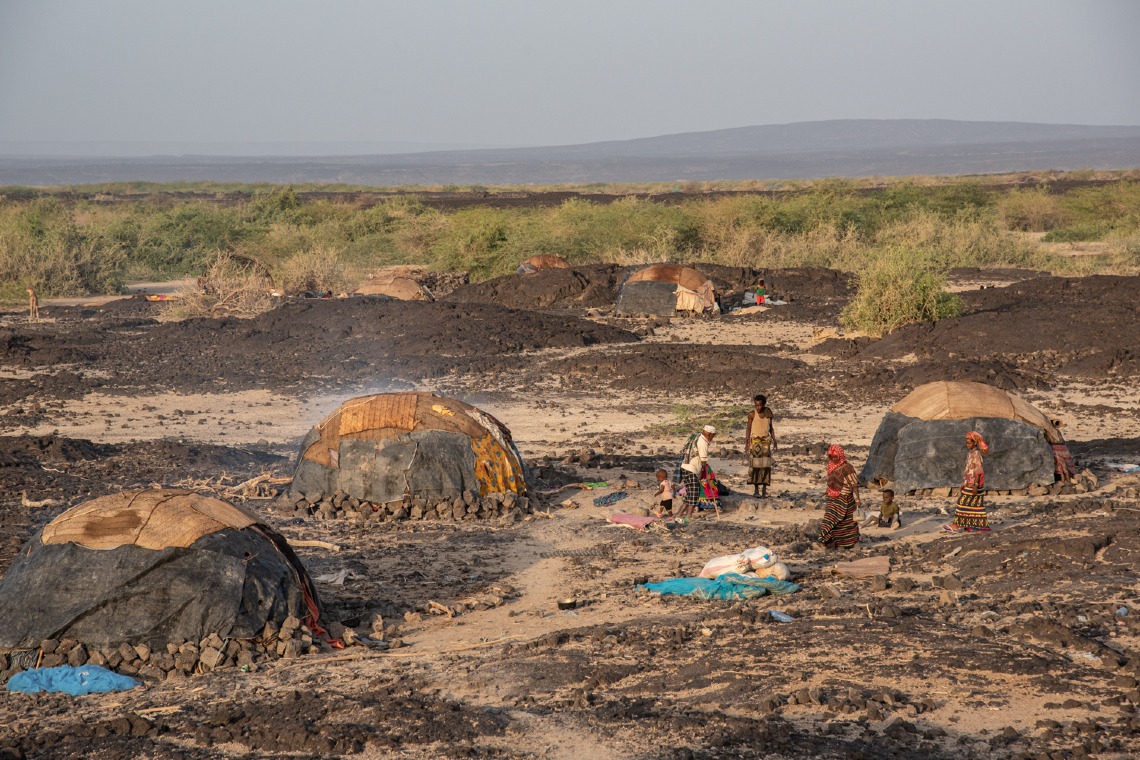
.
On this page
> Rates of maternal mortality in Afar
> Background & causes
> Solution in practice
> Role of a Traditional Birth Attendant
> Progress
.
.
Rates of maternal mortality in Afar
Ethiopia has one of the highest maternal mortality rates in the world. Nationally, almost 195 mothers die for every 100,000 live births. In Afar, the figure soars to 548 deaths per 100,000 – more than double the national average.
That means a mother is lost almost every single day in Afar — over 360 preventable deaths each year.
Only 7% of births in Afar are attended by a skilled health worker, compared to 15% across Ethiopia. In the most remote areas, that figure is close to zero. For many families, the nearest clinic is a day’s walk away. For others, it’s ten.
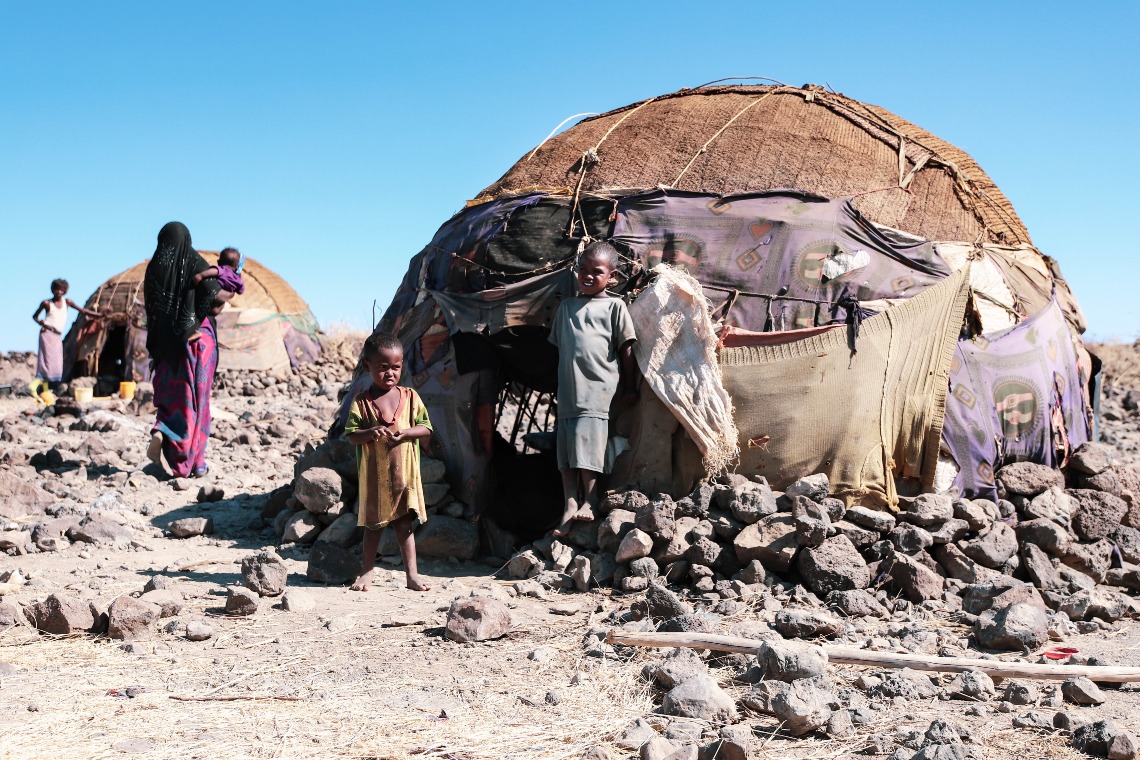
.
.
Background & causes
The reasons behind Afar's high maternal mortality rate are complex, but they all trace back to isolation and inequality.
Geography and inaccessibility
Afar’s landscape is carved by ancient lava flows and scorching plains. Around 45% of the population lives beyond any road network, unreachable by vehicles, ambulances, government or other NGOs.
Nomadic lifestyle
Most Afar families move seasonally with their livestock. Conventional health systems based on fixed clinics cannot meet the needs of such mobile communities.
Poverty and food insecurity
Drought and famine leave mothers malnourished and dangerously weak, unable to endure long labours or produce breastmilk for newborns.
Harmful traditional practices
For generations, childbirth customs have been passed down without access to medical knowledge or hygiene. In some communities, women's genital mutilation scars are cut open with unsterile blades to release the baby’s head; colostrum (a mother’s first milk) is discarded as “poison”; and as many as 50% of newborn girls undergo Female Genital Mutilation (FGM) within days of birth.
Lack of medical infrastructure
With few health posts and scarce trained staff, complications such as haemorrhage or infection can become fatal.
These conditions combine to make Afar one of the deadliest places in Ethiopia to give birth.
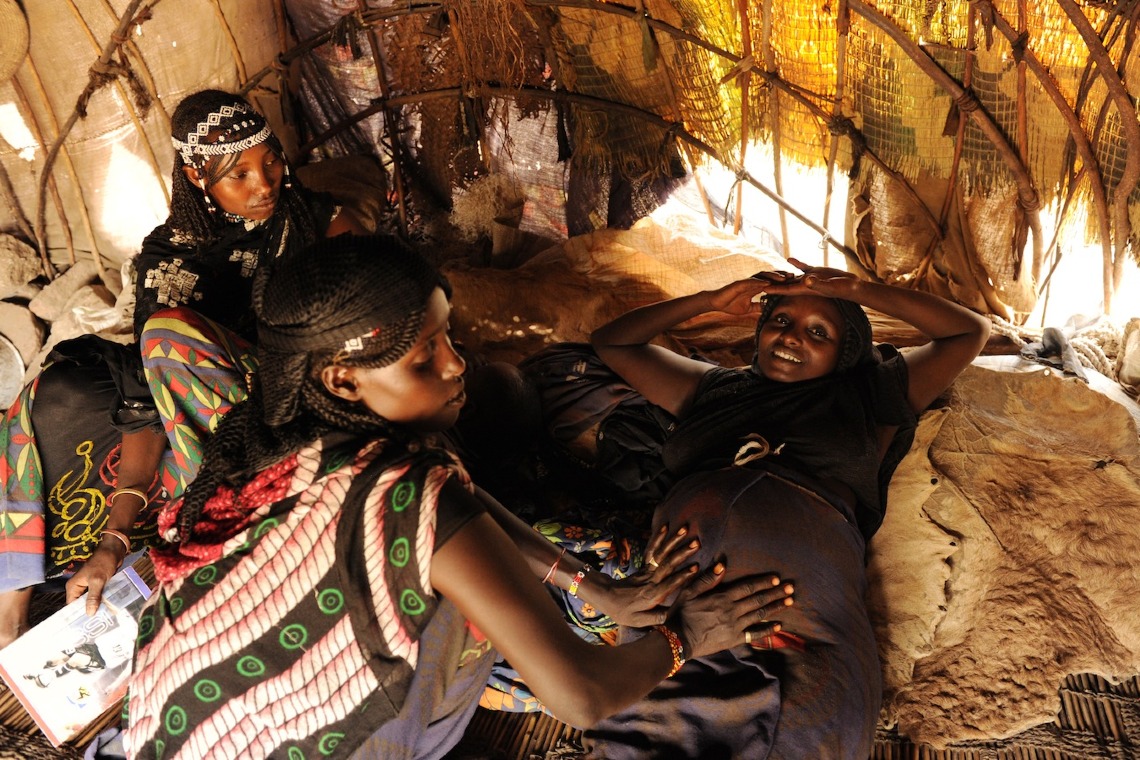
.
.
Solution in practice
For over 30 years, Ethiopiaid’s long-term partner, the Afar Pastoralist Development Association (APDA), has been walking from community to community in Afar, bringing care where no road leads.
APDA’s system is mobile, community-led and culturally integrated. It trains local people, not outsiders, to deliver maternal healthcare within their own communities.
APDA's health teams are made up of:
- Trained Traditional Birth Attendants (TBAs), trusted women from the local community who are a pregnant woman’s first point of support and their link to other health workers or resources.
- Women Extension Workers, who provide counselling and social support.
- Mobile health workers (usually male), who provide more comprehensive medical aid when needed.
Together, they track pregnancies, provide antenatal checks, support safe delivery, and provide continued care after birth to prevent complications and ensure breastfeeding.
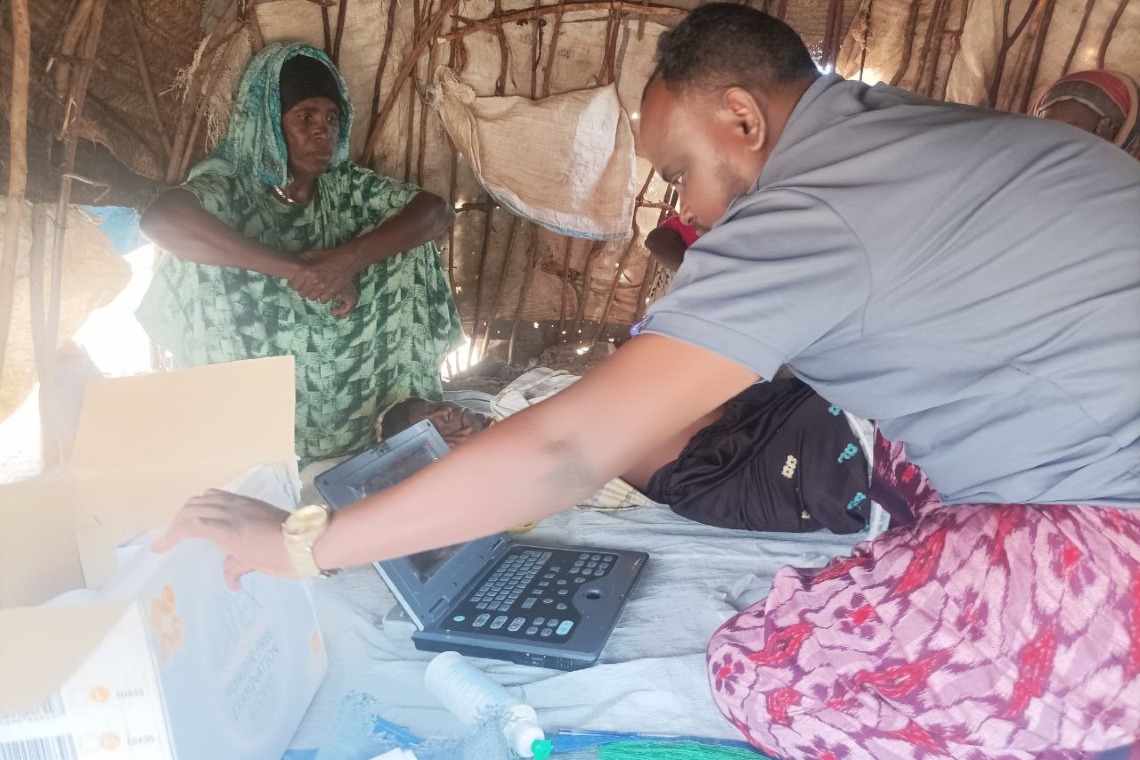
.
.
Role of a Traditional Birth Attendant
What is a Traditional Birth Attendant?
As most women in Afar still give birth at home, far from hospitals or health centres, when labour begins they turn to a Traditional Birth Attendant (TBA). Historically, this a trusted woman in their community who has learned about delivering babies from personal experience rather than formal training.
Today, however, through Ethiopiaid's project partners APDA, these TBAs are receiving formal training. They are taught safe delivery practices, how to recognise signs of risk in pregnancy, when and where to send a woman for emergency care, and how to educate communities about the dangers of harmful traditional practices like Female Genital Mutilation.
They are equipped with pregnancy cards to track each woman's pregnancy and birth, along with clean birthing kits containing soap, plastic sheeting, cotton wool, surgical blade, disposable gloves, cord clamps, and cloths to dry and wrap the baby. Although simple, these birthing kits make a considerable difference between a safe birth and a tragic outcome.
How important is a Traditional Birth Attendant?
In Afar, nearly half the region is inaccessible by road. Some women live days away from the nearest health post. Without a trained Traditional Birth Attendant, a mother’s chance of surviving childbirth is frighteningly slim.
TBAs are vital because they meet women where they are; in their homes (daboytas), in their mobile communities, across dry, inhospitable terrain where no other services reach. They are often the only link between expectant mothers and the wider health system, the ones who can spot danger signs and make sure a woman reaches emergency care in time.
Every TBA trained means more mothers checked during pregnancy, cleaner and safer deliveries, and more newborns surviving their first day of life. Quite simply, TBAs save lives every day in one of the deadliest places to give birth in Ethiopia.
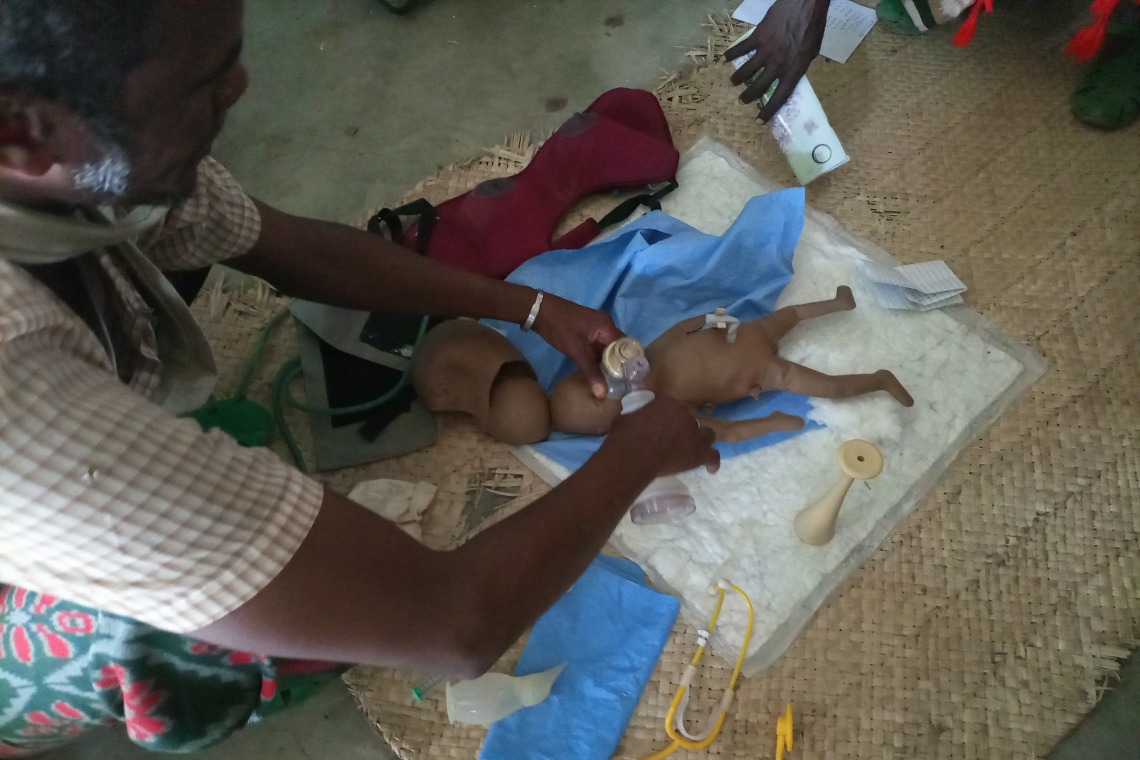
.
.
Progress
Two decades ago, maternal deaths in Afar were among the highest in the world. Today, in areas where the Afar Pastoralist Development Association (APDA) works, the maternal death rate has dropped to levels comparable with Addis Ababa, Ethiopia’s capital city. This transformation is the result of steady, community-led intervention; training local women, building trust, and replacing harmful traditions with life-saving knowledge.
Between July and December 2024 alone, nearly 1,000 mothers gave birth safely with the support of trained Traditional Birth Attendants (TBAs). Of these, around 700 mothers delivered safely at home, while 300 were referred to hospital when complications arose; referrals that almost certainly saved their lives.
Across Afar, APDA has now trained close to 2,000 TBAs, each serving as a vital link between mothers and the wider healthcare system. The impact of their work extends far beyond safe deliveries: they’re helping families understand the importance of maternal nutrition, early breastfeeding, and stopping harmful practices such as Female Genital Mutilation (FGM).
This model - mobile, local, and culturally integrated - proves that even in the most remote and underserved regions, maternal deaths can be prevented. But with nearly half of Afar still beyond reach, there is more work to do to ensure every mother and baby survives childbirth.
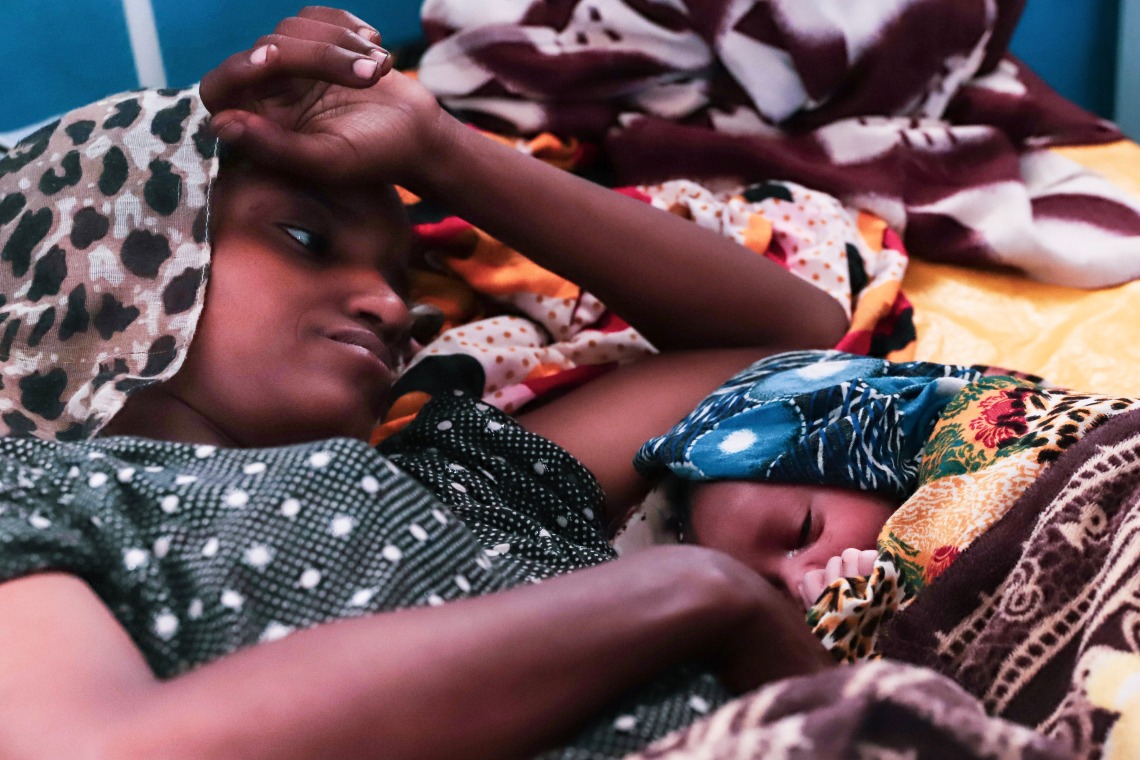
.

